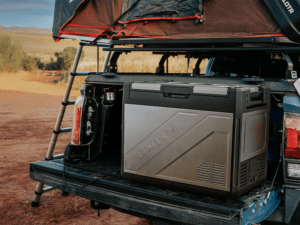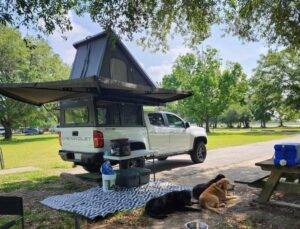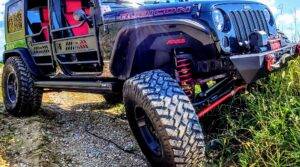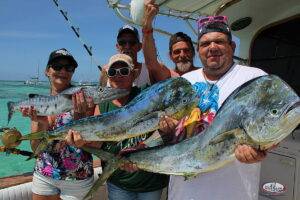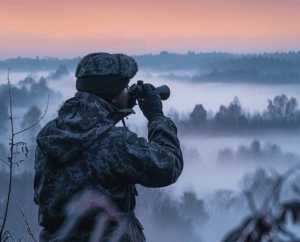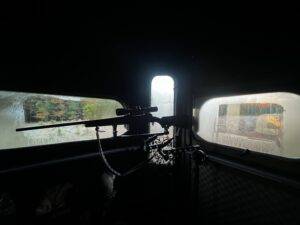Article Written By: Dave Fuhr, www.fuhrlabs.com
It was a beautiful May morning and the sun was just cresting over the hillside with a gentle southerly breeze. Today, just had to be the day as we were expecting our newborn to arrive at any time now.
It had been a long wait since last November when the doe had been bred and we were really excited to see what miracle she was going to give us. With the terrible drought last year here in Missouri, we lost some deer to EHD and overall growth, including antlers were not as we had expected. So we were hoping this year would be different. After all, we were doing “everything, just right”.
You see, I am a Whitetail deer Scientist/Chemist that is in love with my “job”. My wife and I have been raising our herd for almost 15 years now and over that period of time, we have learned a lot of things that work, and maybe more of what does NOT work. Last year was no exception in the “learning curve”.
So this year was to be exciting for us. We had the snow and rain we needed to catch up on rainfall. The deer went through the winter with weight gain, not just maintenance, through a rigorous winter feeding program that included my patented vitamin and mineral mixture, protein pellets and some good grade alfalfa available as well.
I felt the protein was of the greatest importance. Most people recognize that muscle, hair, and hooves are made primarily of protein. Many people do not know that antlers and bone are 45% protein, that skin is primarily protein, and organs in the deer’s body are composed primarily of protein. In fact if you remove the water, a deer’s body averages 74% protein.
 So off we go to “find” our newborns. Well after some very diligent searching, we found “mom” and it was apparent, she had given birth, now all we had to do was find out exactly “where” is our prize. Now I have got to tell you, THAT took some doing as I finally found the “birthing area” and realized I think we are looking for 2 fawns, not just one. About an hour later, we had recovered both of them. One doe and one lil’ buck both were about 5 lbs, so quite healthy. They were still very wobbly and trying to get their legs to work. Of course that did not take very long and by days end, they were following mom quite well.
So off we go to “find” our newborns. Well after some very diligent searching, we found “mom” and it was apparent, she had given birth, now all we had to do was find out exactly “where” is our prize. Now I have got to tell you, THAT took some doing as I finally found the “birthing area” and realized I think we are looking for 2 fawns, not just one. About an hour later, we had recovered both of them. One doe and one lil’ buck both were about 5 lbs, so quite healthy. They were still very wobbly and trying to get their legs to work. Of course that did not take very long and by days end, they were following mom quite well.
 Twins! Guess our rigorous feeding program must have worked. Does forced to eat low protein diets during late winter and spring, give birth to small, weak fawns. The fawns may not be strong enough to nurse and therefore often die a day or two after birth. We surely did not have that problem this year. Those little guys adapted quickly to the hiding game. All curled up in the “typical cute fawn” position. In the next few days, these guys took up with us just fine.
Twins! Guess our rigorous feeding program must have worked. Does forced to eat low protein diets during late winter and spring, give birth to small, weak fawns. The fawns may not be strong enough to nurse and therefore often die a day or two after birth. We surely did not have that problem this year. Those little guys adapted quickly to the hiding game. All curled up in the “typical cute fawn” position. In the next few days, these guys took up with us just fine.
Overall nutrition for fawns can be “challenging” to say the least. Newly weaned fawns require diets with up to 19% crude protein to achieve peak growth rates. Just like low energy intake, low protein intake can reduce growth rates of young deer. Low dietary protein can result in smaller antlers, particularly in yearling bucks which need protein to support body growth. Ensuring deer have access to forages or feeds with 16-20% protein during summer, will enable deer to meet their growth requirements. Access to high protein forages in autumn will enable recently weaned fawns to adjust to a forage based diet as well.
Your goal as a manager should be to provide your deer with foraging choices to mix a diet with the appropriate amount of protein. Pellet supplemental feed can be one of these foraging choices. Protein requirements are lower during late autumn due to plant availability , so the use of a quality pellet is definitely needed. Ideally, your pellet supplement should also contain the necessary vitamin and minerals to maximize the genetic potential of your deer. After all, is that not what you want to achieve? Have that lil’ buck fawn grow into a magnificent breeder buck? And let’s not forget our “original lil’ doe”. I know I want her to pass on those genetics to her next years fawn as well!

